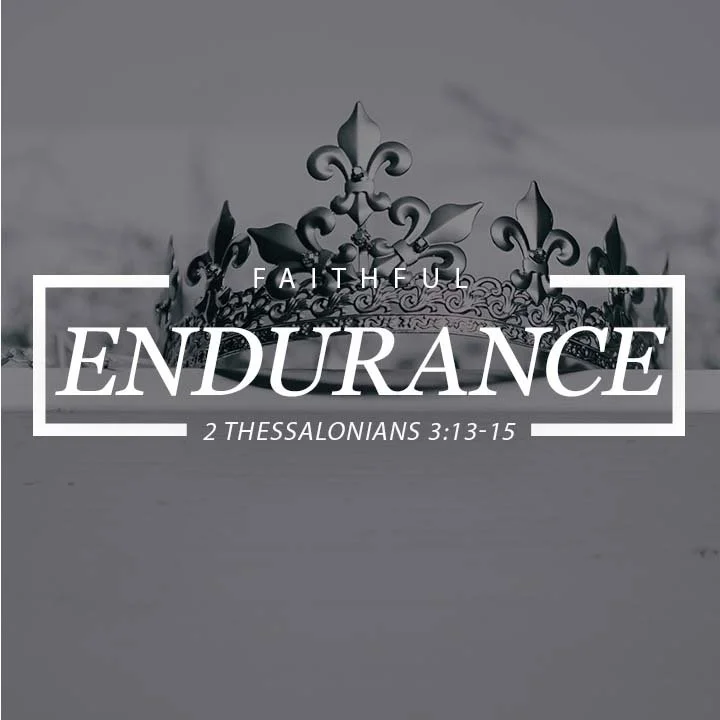All for the Kingdom
Sermon Podcast
Purposeless Prosperity, Genesis 4:17-24
Cain’s descendants built cities, developed culture, advanced technology, and prospered in ways the world would applaud—yet they lived every moment outside the presence of God. Their story reminds us that success without God is not success at all. Prosperity apart from Him may look impressive, but it cannot satisfy, it cannot save, and it cannot endure. In this episode, we explore how the busyness of building for nothing and the foolish confidence of worldly achievement can silently pull our hearts away from what matters most—and why true purpose is found only in a relationship with Christ.
Sin’s Ruinous Rule, Genesis 4:8-16
In “Sin’s Ruinous Rule” (Genesis 4:8–16), Pastor Ben Smith examines Cain’s tragic story to reveal three warning signs of sin’s growing destruction—its mastery, its blindness, and its judgment—while calling believers to repentance and the redeeming grace found only in Jesus Christ.
A Life After God’s Own Heart, Psalm 15
When God saves you, He transforms you, and your life will bear the evidence of His holiness.
David begins Psalm 15 with a question.
Who can sojourn or abide with God, and who can dwell or remain in the presence of God? The simple answer to this is no one, unless they have been redeemed and made righteous through saving faith.
David answers his opening question with six characteristics of a life that has been transformed by God. These six characteristics are not an exhaustive list but are representative of the transformation that God brings to your life through salvation that produces in you a life after God’s own heart.
Faithful Endurance, 2 Thessalonians 3:13-15
The cost of faithful obedience does not negate the worthiness and value of Scripture’s commands. The difficulty or unpleasantness of a task does not mean that the task is unnecessary or a worthless pursuit.
Church discipline is hard, relationally taxing, and requires significant attention and energy from the church. This level of investment and cost was causing the Thessalonian church to grow weary, and some were surely tempted to give up or give in. In our day, many church members are weary from the excessive commitments they have made outside of the church. This leads them to be unprepared and with little tolerance or energy for the mental attention, emotional fortitude, and spiritual determination required for church discipline. Additionally, our culture places great importance on preserving the individual’s self-esteem, emotional stability, and autonomy. Any attempt to express judgment towards an individual is countercultural and generally rejected. The church is not immune to these cultural forces and is often tempted to compromise biblical fidelity for the sake of cultural acceptance.
In this passage, Paul pleads with the church to faithfully endure in church discipline, regardless of how difficult the task may be.
Soldiers for Christ, 2 Timothy 2:1-7
Work, labor, and suffering are not words well received today. Wealth and modern conveniences have created a world where ease and comfort are celebrated as the ultimate goal. This unhealthy celebration of ease and comfort has also infected the church. Many Christians today see their relationship with the church and gospel work not in terms of sacrifice and service but in terms of consumer choice and comfort.
God calls every Christian to labor in the gospel work. And God equips faithful Christians for the work. No Christian is called to be only a consumer. Ease and comfort are not the ultimate goals of followers of Christ. Christians are called to be about gospel work regardless of cost or difficulty. 2 Timothy 2:1-7 teaches three fundamental truths that must be understood by those who desire to be faithful to the gospel work.
Fight the Good Fight, 1 Timothy 6:11-16
In the concluding words of 1 Timothy, Paul addresses Timothy as a man of God. From this passage, the Bible commands Christians to be set apart for God and called to faithful obedience because God is worthy of all the glory and honor.
Sanctity of Life, Psalm 139:13-16
The sanctity of life for Christians is not a political issue. The sanctity of life for Christians is a convictional issue that before the Lord, every human life is made by God and holy before God.
Psalm 139 is a psalm of David and a powerful word on the omnipresence of God. Verses 13-16 come in response to David marveling that God knows everything about him. Building on this, David declares that every human life is the glorious masterpiece of God, known by God, and the intentional work of God.
The Lord is Holy, Psalm 11
This is a Psalm of David, but it is unknown what situation he is writing about. From the first two verses, we learn that he is being threatened by evil persons and has received the counsel to flee for safety. However, in the situation that was the occasion of this psalm, David was led by the Lord not to flee from whatever was threatening his life. He trusted his life and well-being to the provision of God. Psalm 11 is not about David’s bravery, wisdom, tenacity, or leadership. This psalm is about who God is.
The division of the psalm is in two parts. It begins with a statement and question, followed by a testimony of who God is. The first part is a declaration of faith: “In the Lord, I take my refuge (vs. 1).” The evidence of this faith is that David rejects the suggestion that he should flee like a bird. The second part is verses 4-7, which testify that God is holy, actively working, and eternally righteous.









